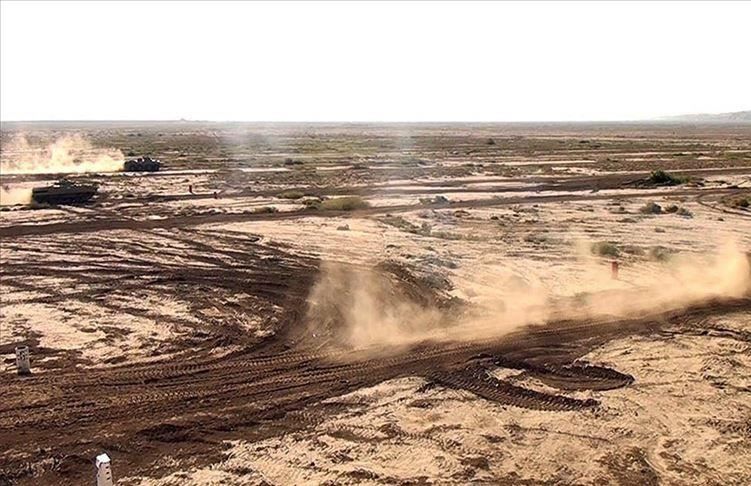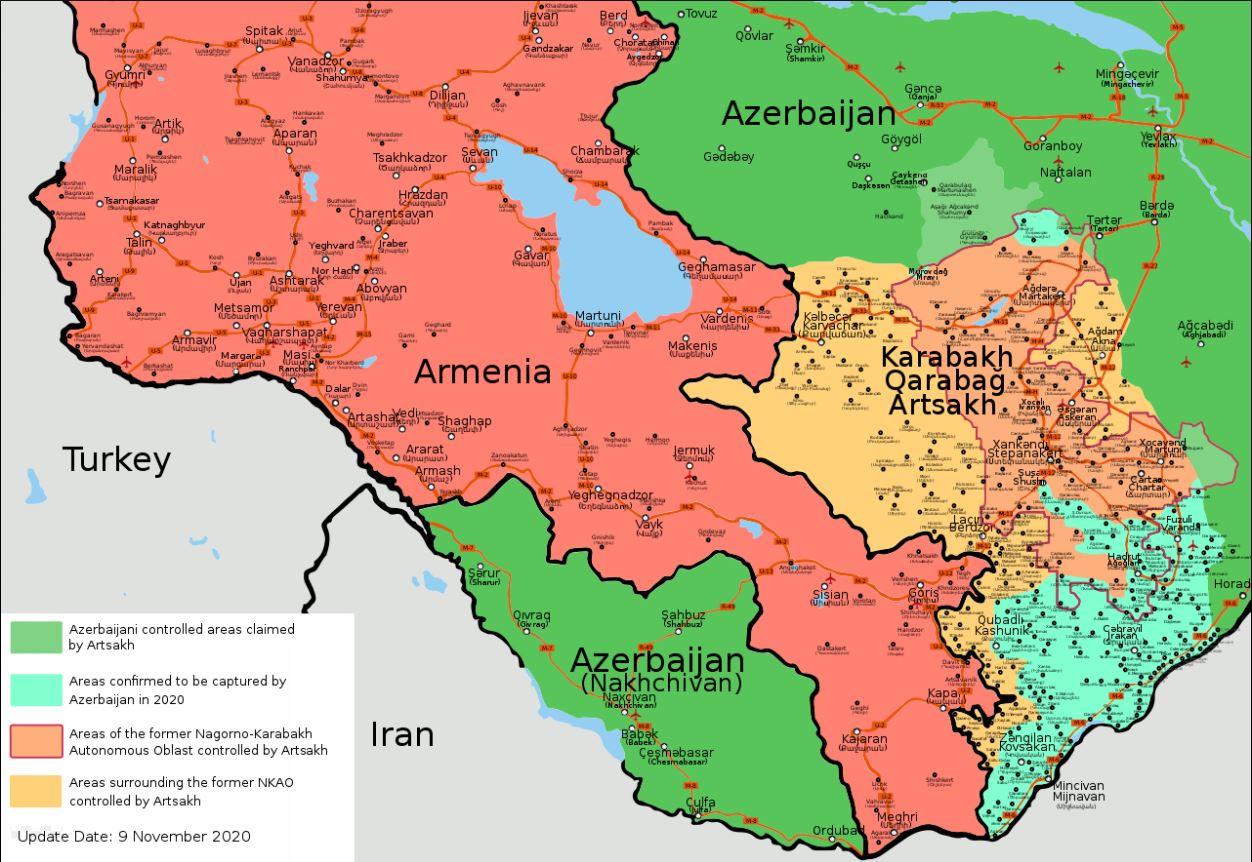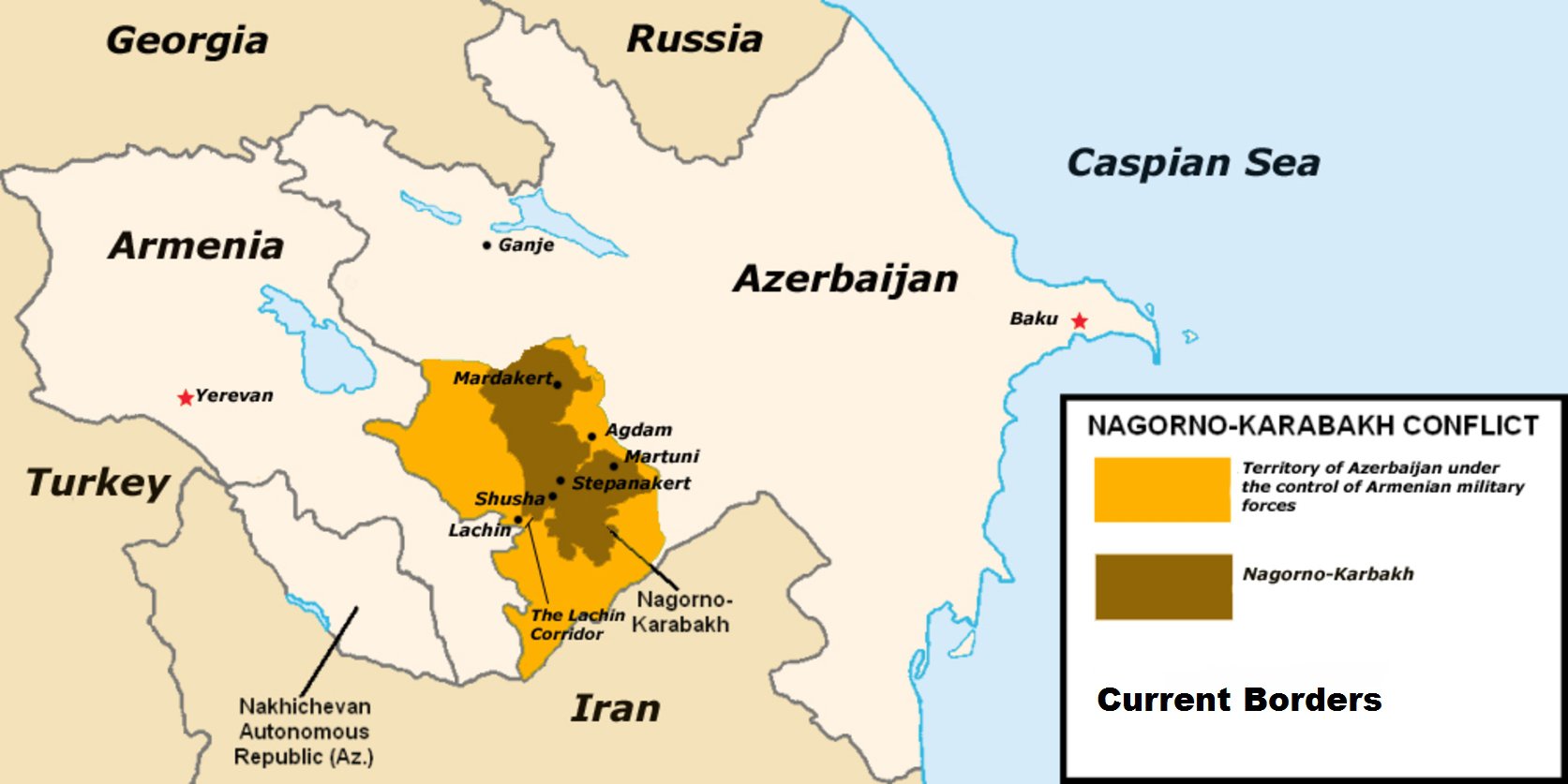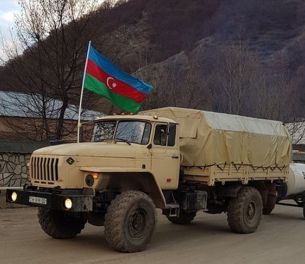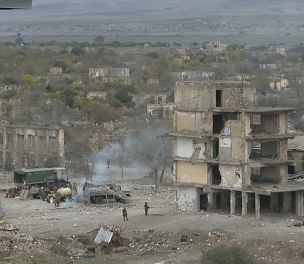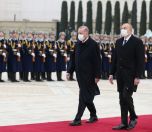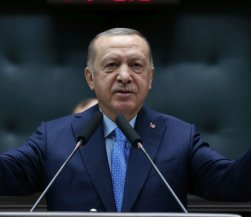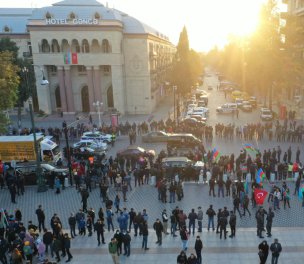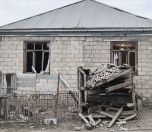Photo: AA/File
Turkey's peace keeping forces won't enter Nagorno-Karabakh as part of the efforts to monitor a newly signed trilateral deal, Russia's Minister of Foreign Affairs Sergey Lavrov said today (November 12), according to the country's state-run TASS agency.
"No peacekeeping units of the Turkish Republic will be dispatched to Nagorno-Karabakh. There is a clear provision on that score in the joint statement of the leaders," Lavrov said, referring to the peace deal signed by Moscow, Baku and Yerevan after 44 days of conflict in the disputed region.
President Recep Tayyip Erdoğan said yesterday (November 11) that Turkey and Russia signed a memorandum of understanding, according to which they would jointly monitor the deal.
"Turkey will join the peacekeeping forces in the region to monitor the implementation of the deal with Russia," he told his Justice and Development Party's (AKP) parliamentary group.
Lavrov also noted that he had seen similar statements by Turkey's Minister of Foreign Affairs Mevlüt Çavuşoğlu and Minister of National Defense Hulusi Akar.
"This concerns the center that will be stationary and will operate without sending out any missions. It is true that at this center proper Russian and Turkish specialists will be working on the parity basis," he explained.
"The center will be operating in a remote mode, using technical means of monitoring, such as drones, which will allow for keeping an eye on the situation on the ground in Karabakh and determining which side observes the ceasefire and which violates it," he added.
What happened?
On September 27, clashes erupted between Armenia and Azerbaijan in the disputed territory of Nagorno-Karabakh, or Upper Karabakh. As Azerbaijan advanced in some parts of the region, several attempts to secure a ceasefire failed. While thousands of people have been reportedly displaced during the conflict, Azerbaijan's second-largest city, Ganja, was hit by ballistic missiles four times in October. Dozens were killed and hundreds were wounded in the attacks. On November 9, Azerbaijan took the control of Shusha, a major city in the Karabakh region. One day later, Baku and Yerevan signed a Russia-brokered agreement to end the fighting and work towards a comprehensive solution. About the Nagorno-Karabakh dispute
Nagorno-Karabakh is a mountainous region of approximately 4,400 square kilometers in the Caucasus between Armenia and Azerbaijan. Relations between the two former Soviet countries have been tense since 1989 over Nagorno-Karabakh, or Upper Karabakh, an internationally recognized territory of Azerbaijan populated mostly by Armenians. In 1989, the parliament of Azerbaijan removed Nagorno-Karabakh's autonomous status, which had been in place since 1923. During the dissolution of the Soviet Union, Armenia began military operations into Nagorno-Karabakh in 1991. In the same year, the separatist administration in Nagorno-Karabakh declared independence. The Azeri people of the region had boycotted the independence referendum. The independence of the Nagorno-Karabakh, or Artsakh republic, is not recognized by any United Nations member state, including Armenia. Four UN Security Council and two UN General Assembly resolutions as well as many international organizations demand the withdrawal of the occupying forces. The OSCE Minsk Group – co-chaired by France, Russia and the US – was formed in 1992 to find a peaceful solution to the conflict. A cease-fire was agreed upon in 1994. France, Russia and NATO, among others, have urged an immediate halt to clashes in the occupied region. During the conflict between 1988-1994, about one million people were displaced and 30,000 were killed. |
(VK)




